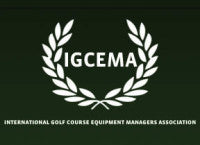Where do we come from?
 People talk about grass roots greenkeeping, but what about the grass tips of greenkeeping? Equipment technicians are the very people who have the responsibility of keeping grass tips cleanly cut!
People talk about grass roots greenkeeping, but what about the grass tips of greenkeeping? Equipment technicians are the very people who have the responsibility of keeping grass tips cleanly cut!
It was good to read the chairman's column in the May edition of Greenkeeper International; what he said was very true "The work involved in maintaining golf course equipment properly demands the skills and experience of trained staff, together with an adequately equipped workshop. Many clubs rely on dealers and outside help, whilst some see in house facilities as essential to the smooth running of their operation. Whatever is appropriate." But, it also raises the question, where do trained workshop staff come from?
I come from inside the industry, starting as a greenkeeper in 1987 at horticultural college, and then moving on to the workshop and attending agricultural engineering college, finally becoming the workshop manager here at John O'Gaunt Golf Club, which I believe to be a near perfect apprenticeship for the trade.
So, why do many technicians come from the car trade or agricultural workshops, with only a few from within the industry itself? Is this from lack of career awareness?
Personally, I think it is. After doing some research into the subject, I could not find anywhere where golf course machinery technician was offered as a career path, or very little mention of equipment technicians at all.
The technician, who plays a key role in golf course preparation and presentation, some would say, is as important as the course manager, ensuring accurate machine set up and quality of cut.
Equipment managers, technicians and greenkeepers who carry out machinery maintenance are estimated to number only 300 or 400 in the UK, (a small number compared to the US), and are required to carry out machinery maintenance to a very high standard.
With many clubs experiencing reduced members and visitors, they cannot justify employing full time technicians. The number of greenkeepers that carry out machinery maintenance on a part time basis, with dealership support, is far greater than full time staff, which works well for these clubs.
With so many untrained 'mechanics' in the industry, how can they increase their knowledge? By talking to each other of course, but how?
You may think it's not that easy, considering that I don't even know the equipment technician's name at Woburn golf club forty-five minutes down the road!
But, recently, I have had many communications with Pat (Cal) Callaby at Celtic Manor Resort, Chris Minton at the Belfry and Stephen Tucker at the Ritz-Carlton in Bradenton, Florida, all of whom are members of the International Golf Course Equipment Managers Association (www.igcema.org). 
Oh no, you may think, yet another association, but just wait and consider this. We all encounter technical problems on a regular basis and, sometimes, have little opportunity to talk to anybody that may be able to add constructive input to solve the problem.
But, what about if someone in Spain, Australia or even just down the road has experienced the same fault? Well, this is where IGCEMA comes into its own. You make a post regarding the fault, describing what happens and when. It may just be the case that Joe Bloggs from Outer God Knows Where has just fixed the very same fault on his machine and, for the zero cost of joining the association, you have your solution.
That's right, joining IGCEMA costs nothing and is simple to do online. Just click on www.igcema.org and you can start supporting its aims, learn from other members and contribute to its pool of knowledge.
There is no reason why every golf club in the country should not have a member of IGCEMA within its staff. So, next time you're at a BIGGA meeting, training day or golf day, tell your colleagues about IGCEMA and encourage them to join.
Stuart Hall
Workshop Manager
John o'Gaunt Golf Club
